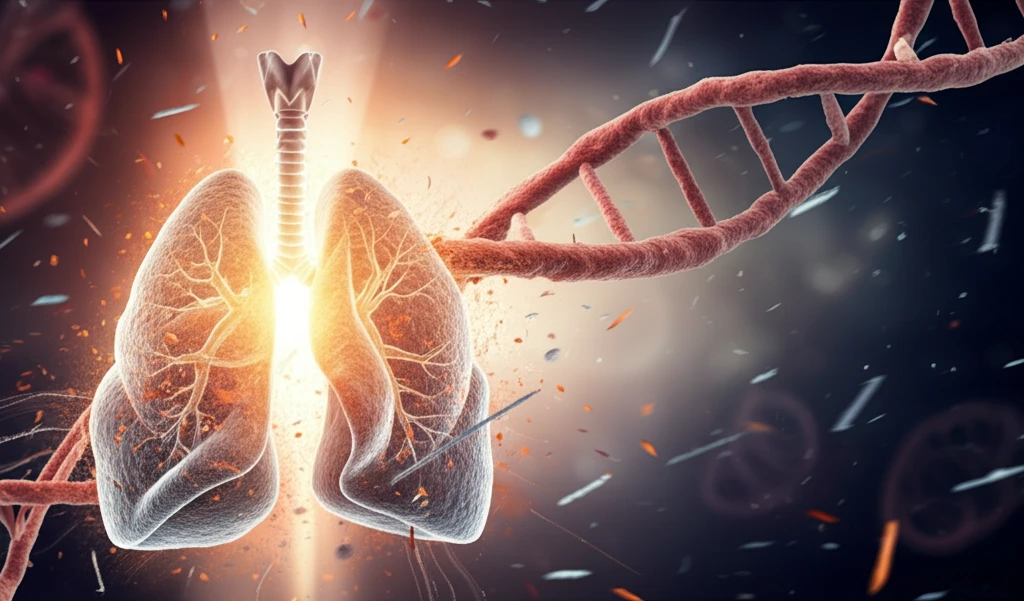
Lung Cancer Breakthrough: New Strategies to Overcome Treatment Resistance
"Discover how scientists are finding innovative ways to combat resistance to EGFR inhibitors and other therapies, offering hope for improved outcomes in lung cancer treatment."
Lung cancer remains a leading cause of cancer-related deaths worldwide, with many patients developing resistance to standard treatments like EGFR inhibitors and chemotherapy. This resistance poses a significant challenge, leading researchers to explore new strategies to improve patient outcomes.
Recent studies have shed light on the mechanisms behind treatment resistance, particularly in non-small cell lung cancer (NSCLC). These studies focus on how cancer cells adapt and evolve to evade the effects of targeted therapies, such as icotinib and other tyrosine kinase inhibitors (TKIs).
This article delves into the latest research presented at a major oncology conference, highlighting innovative approaches to overcome treatment resistance. We will explore how scientists are targeting new pathways and combining therapies to improve the effectiveness of lung cancer treatment.
Targeting Autophagy to Reverse Icotinib Resistance

One of the studies presented focused on overcoming acquired resistance to icotinib, a first-generation EGFR inhibitor. Researchers found that autophagy, a cellular process where cells degrade and recycle their components, plays a significant role in icotinib resistance. Specifically, icotinib induces autophagy in resistant cells, protecting them from the drug's effects.
- Study Details: The research team found that icotinib triggers a STAT3/STMN1-dependent autophagic response in resistant cells. Silencing STAT3 and STMN1, key proteins in this pathway, significantly increased icotinib-induced apoptosis (cell death).
- Clinical Implications: These findings suggest that combining chloroquine with TKIs like icotinib could be a promising strategy to overcome TKI resistance and prolong survival in patients with NSCLC. Chloroquine's low toxicity and cost make it an attractive candidate for clinical trials.
- Relevance: This approach addresses a critical need for new strategies to combat TKI resistance, which is a major reason for treatment failure in lung cancer.
Future Directions in Lung Cancer Treatment
The ongoing research into lung cancer treatment resistance is paving the way for more personalized and effective therapies. By understanding the specific mechanisms that drive resistance in individual patients, clinicians can tailor treatment strategies to overcome these challenges. Combination therapies, novel drug targets, and innovative clinical trial designs are all contributing to the fight against lung cancer, offering hope for improved outcomes and prolonged survival.
